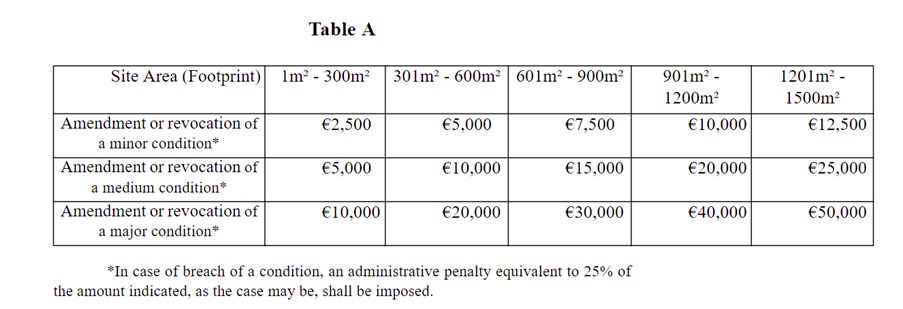On the 23rd of August 2024 a legal notice titled “Amendment or Revocation of a Condition imposed in a contract of a property transferred by the Government, the Lands Authority or Ecclesiastical Entities by means of a sale or emphyteusis Regulations” (L.N. 196 of 2024) (“New Regulations”), was published repealing L.N. 370 of 2020 (“Previous Regulations”).
By virtue of these New Regulations a new scheme has been introduced by the Lands Authority (“Authority”) which essentially allows applicants to make requests to the Authority when it comes to an amendment or revocation of a condition imposed in a contract of a property transferred by the Government, the Authority or Ecclesiastical Entities by means of a sale or emphyteusis.
Of note, is the introduction of three categories (minor, medium or major) allocated to a condition/s based on its importance which is decided on a case-by-case basis by the Board, or any such other member or officer of the Authority as may be authorised by the said Authority during the processing of an application. On the basis of such a determination, the Authority would then establish the fees and administrative penalties, if any, to be paid.
Regulation 6 makes reference to Table A of the Schedule which establishes fees for sites not exceeding one thousand and five hundred metres squared (1,500m2) and this on the basis of the three categories above-mentioned.
Table A: On the other hand, Regulation 7 regulates those sites which exceed one thousand and five hundred metres squared (1,500m2) which in such cases the Perit appointed by the Authority shall provide an estimate on the basis of article 79 of the Government Lands Act (Cap 573 of the Laws of Malta).
On the other hand, Regulation 7 regulates those sites which exceed one thousand and five hundred metres squared (1,500m2) which in such cases the Perit appointed by the Authority shall provide an estimate on the basis of article 79 of the Government Lands Act (Cap 573 of the Laws of Malta).
Whilst Regulation 7(1) of the New Regulations is more or less the same as Regulation 5(1) of the Previous Regulations, the provisos and sub-articles that follow in the New Regulations are different.
The valuation carried out by the Perit shall reflect the freehold value of the land on the date of the application, with all its potential development according to the planning plans and policies in force, with no regard to be had to any building, development or other improvement already developed or made thereon by the owner or the emphyteuta (contrary to the Previous Regulations).
Moreover, Regulations 7(2), 7(3) and 7(4), establish the percentage amount payable by the applicant for the removal of a condition of a minor importance, medium level importance and major level importance respectively. In fact, in the case of a removal of a condition of minor importance the amount paid should be equivalent to 2.5% of the value determined by the Perit, and in the case of removal of a condition of medium importance and major level importance the percentages are 5% and 10% of the value determined by the Perit, respectively.
Of particular note is that Regulation 7 makes reference only to ‘revocation’ of a condition and there is no reference to ‘amendment’ of a condition as is the case under ‘Table A’ addressed under Regulation 6 (depicted above).
Moreover, one cannot help but notice the general reduction in the percentage fees imposed by the New Regulations as opposed to the previous Regulations.
In the case where during the verification of the application, the relevant condition is being breached the applicant shall be liable to an administrative penalty that shall be equivalent to 25% of the value as established by the Perit.
The New Regulations also include the requirement of any modification or removal to be made by a public contract and the Authority’s right to suspend and where it deems necessary deny, any application submitted where there is a ‘legal challenge’ in respect of the land in question. Moreover, any request for the amendment or revocation of any condition imposed in an original contract of a property owned by the Government or an ecclesiastical entity which is still pending prior to the entry into force of the New Regulations shall be examined by the Authority in accordance with the New Regulations.
Lastly, any applicant is entitled to appeal from a decision take by the Authority taken pursuant to the New Regulations.
The introduction of these New Regulations with particular note to the three classifications allocated to the condition/s as per the above-mentioned as well as the fees accorded to each classification (in the case of sites which do not exceed one thousand and five hundred metres squared (1,500m2)) will most certainly help facilitate and provide more transparency on the Authority’s processes when requests of such nature are made.


